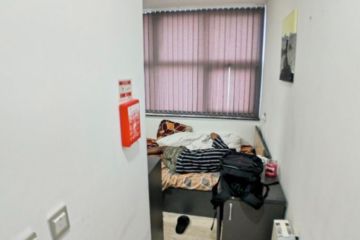Long harm of the law

It is ironic that an obscure piece of ageing legislation, designed to protect renters from excessive upfront payments, is having the opposite effect. But, with the federal government in election mode and the state government gearing up for its own polls, Tenants’ Union of Victoria (TUV) spokesperson Toby Archer isn’t holding his breath for a quick fix.
“It has been brought to the attention of the Minister for Consumer Affairs, Tony Robinson, and his office has told us that they’re happy to look into it, but I don’t think anything’s going to happen soon,” says Mr Archer, a policy and liaison worker with the TUV.
The problem stems from an outdated definition of median rent enshrined in the 1997 Residential Tenancies Act. The act stipulates that maximum bond payments can’t exceed monthly rent unless the latter is $350 or more a week.
Likewise, it prevents landlords from charging more than one month’s rent in advance unless the weekly rent exceeds $350. The idea was to protect renters from excessively high upfront payments at the medium to low end of the market without penalising landlords of properties at the upper end.
But Melbourne’s median rent has skyrocketed since the legislation was passed. “Three hundred and fifty dollars represented just over double the median rent back in 1997,” Mr Archer says.
“And, obviously, with the way the market has shifted so drastically in the past 13 years … $350 is now about the median. We think that the principal is a good one and it should be maintained. The way the government can do that is quite simple: by amending the limit and making sure it doesn’t get out of whack in the future.”
The TUV wants the maximum increased to at least $650 and reviewed every two years. “It’s kind of akin to the notion of bracket creep in taxation,” Mr Archer says.
According to the Victorian Office of Housing’s rental report for the March quarter, published by the Department of Human Services, median weekly rent for a two-bedroom house in Melbourne was $350 (up 5 per cent on March 2009).
The median for a two-bedroom unit or townhouse was $340. With landlords commonly asking for bond plus two or three months’ rent in advance, rather than just one, even some households with two average incomes are struggling to find the cash, according to Mr Archer.
For those on low incomes vying for dwellings at or above the median (close to work, perhaps, or large enough for a biggish family), the going is particularly tough. Bidding wars to secure popular properties often add to the burden.
“The frustration they express most commonly is that they’re renters now … they’re looking to secure a new property and the upfront costs of rent in advance and a bond before you get your bond back from your old property is really significant,” Mr Archer says.
“It can mean that they have to somehow find several thousand dollars just to secure a home, and that’s really, really tough for lots of households.”
We recommend
We thought you might like
States
Capital Cities
Capital Cities - Rentals
Popular Areas
Allhomes
More







